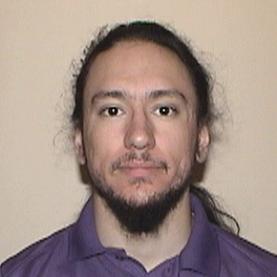Meet Brandon Garcia
The Summer Institute was first established in 1998 by the Graduate School Diversity Office to provide seven weeks of research opportunity and added support and development for newly-admitted Native American graduate students and domestic graduate students of color. 44 students particpated in 2018, the largest cohort to date. In 2019, former Summer Institute participants were introduced as peer mentors. We reached out to Brandon Garcia, who participated this year, to see how the Summer Institute impacted his first semester of graduate school and how his journey drew him to the University of Minnesota.
What was your experience like at the Summer Institute?
It was a wonderful experience that served dividends to my confidence and comfort going into my first semester as a graduate student. Meeting people of all sorts of backgrounds really reassured me that I had a place here at UMN, and it really helped me conquer some of the fears I had going into graduate school. I was quite intimidated at first, but having the opportunity to adjust to the environment surrounding the academic life made me feel more comfortable in Minneapolis, and adjusting to the city was a very important step that could have been lost had I not had this opportunity. Having the opportunity to adjust to the environment surrounding the academic life made me feel more comfortable in Minneapolis.
What led you to the research you are pursuing?
The research I am pursuing is a result of my fascination with physics. Although I am an Electrical Engineering student, It was after learning Quantum Mechanics that I really felt compelled to further my understanding of the way we manipulate physical structures to achieve incredible things with electromagnetism.
What do you value most about graduate education? How did you decide to come to UMN?
What I value most about graduate education is the thirst for knowledge. I am always inspired to learn more in my field and there is no better place to do it than at the highest academic level possible. Living in the information era, the world is constantly changing and molding at an unprecedented rate so it was hardly a question of whether I wanted to pursue higher education because I want to be able to adapt to meet the needs of the century ahead of us. What led me to UMN was the level of excellence demonstrated by the College of Engineering; there are many phenomenal things being done in the college, and my advisor is very committed to her research and her students which is a wonderful environment to be in.
Tell us a little about your background - where you grew up, where you did your undergraduate work, what circumstances framed your project.
I grew up in one of the many suburbs of Chicago, and I was very fortunate to have a dichotomy of parenting styles when I was young. Most would consider this adverse, and eventually my parents did divorce. However, I see it more as fortunate because it has molded me into an impartial, critical thinker. My father has a very informal education but possessed a strong intuitive skill set that is very reminiscent of an engineer, whereas my mother has a formal education, holding multiple degrees, and is herself a teacher. It was my mother who set me on the path of academic achievement, carefully placing me in environments where I would be most suited to succeed and carefully nurturing my desire to learn. My father does not hold a college degree and in fact I do not believe anyone in his family has before; nonetheless he showed me how intuition could be used to visualize the world in a different way, and that allowed me to displace myself from reality in order to realize metacognition.
My undergraduate work was done at the University of Iowa, in Iowa City, where I began my path down engineering. I had always aspired to be a theoretical particle physicist as a child, but the skill-set that I possessed suited engineering better. It was this admiration for physics that led me to choose the path of Electrical, and now I have the opportunity to delve deeper into this field.
What do you hope to do after getting your degree?
Originally my goal was to work in industry, as I was always fascinated by the level of technological advancement that was achievable for society to consume. However, after I began working as a teaching assistant in my undergraduate career, I grew fond of the idea of being able to further other student's understanding of our field. Regardless of what path I go down, I will always seek to learn and progress to my greatest ability.
Brandon Garcia is a Ph.D. candidate in Electrical Engineering and COSP scholar.
